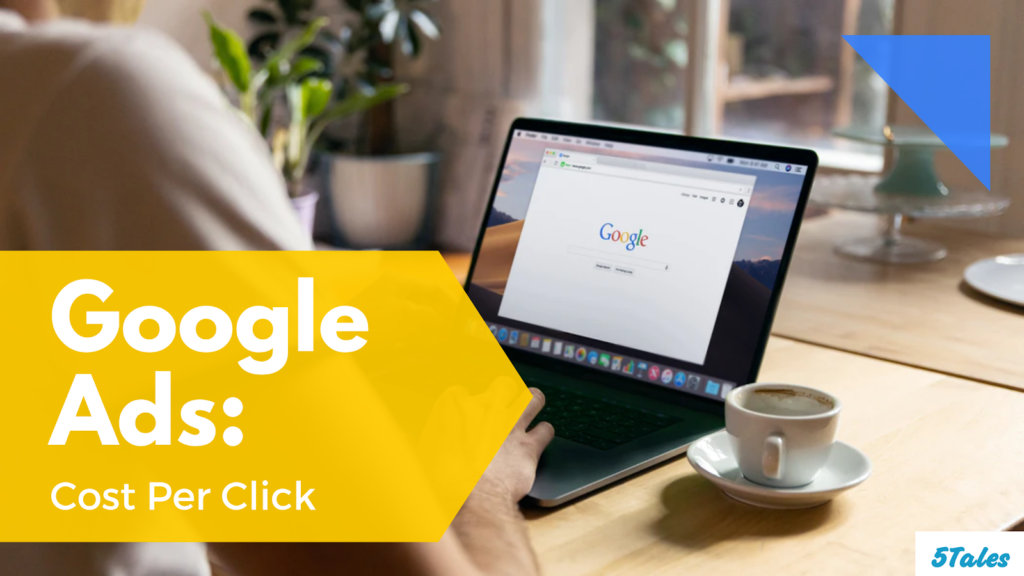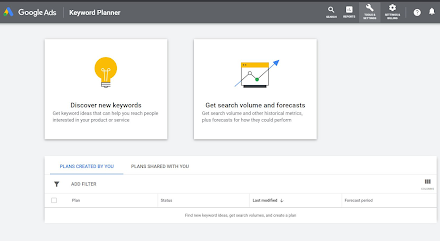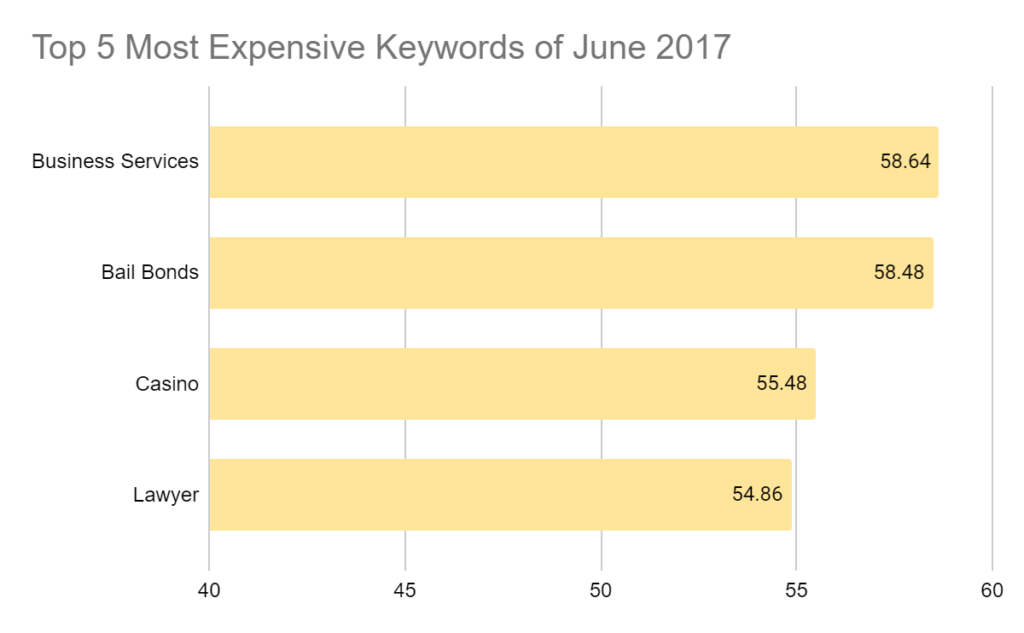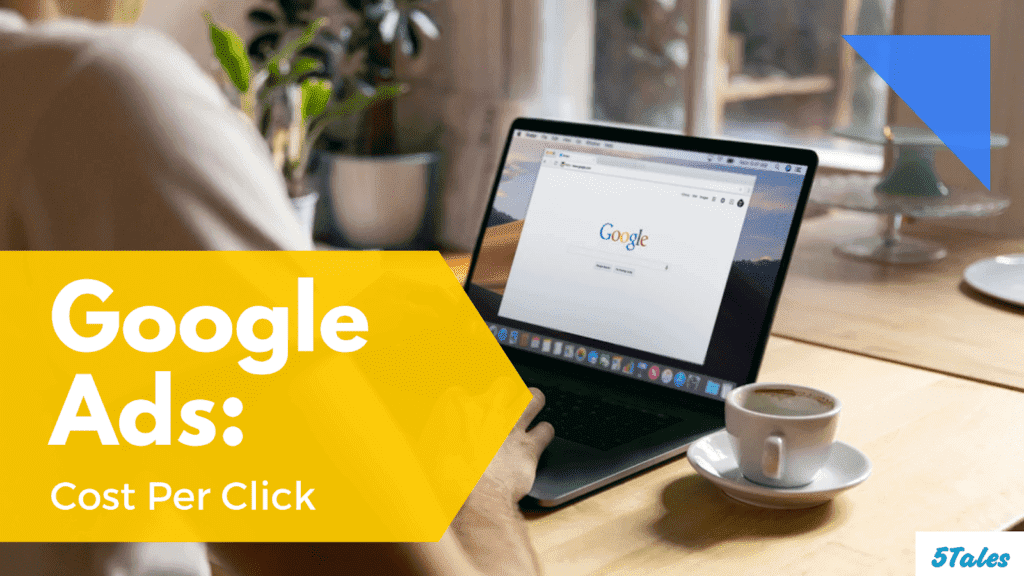The majority of people on Google Ads are already reaping the benefits of their investment in a PPC platform. As an advertiser, you are probably aware of how much Google Ads can help your business in raising the bar and achieving business goals.
 Before you begin your Google Ads campaign, it’s important that you gear up with clear and realistic goals and expectations. Knowing how much Google Ads will cost for your business is a fantastic way to start.
Read on so you can start your first Google Ads campaign on the right foot.
Before you begin your Google Ads campaign, it’s important that you gear up with clear and realistic goals and expectations. Knowing how much Google Ads will cost for your business is a fantastic way to start.
Read on so you can start your first Google Ads campaign on the right foot.


 The Keyword Planner has a forecasting tool that is fantastic for predicting costs per click. It is almost like a Google Ads cost calculator. Your keyword forecast includes estimates of clicks, cost, impressions, click-through rates (CTR), and average CPC for your keyword. For forecasts in total cost and conversions, take it with a grain of salt because it doesn’t consider Google Ads budget limitations.
The Keyword Planner has a forecasting tool that is fantastic for predicting costs per click. It is almost like a Google Ads cost calculator. Your keyword forecast includes estimates of clicks, cost, impressions, click-through rates (CTR), and average CPC for your keyword. For forecasts in total cost and conversions, take it with a grain of salt because it doesn’t consider Google Ads budget limitations.


5Tales Marketing: How To Calculate Google Ads Cost-Per-Click
How Much Do Google Ads Cost, Really?
It is reasonable to search for how much Google Ads costs, especially if you’re only just starting with PPC. Having a clear expectation on how much you have to shell out to advertise on Google can make it easier for you to set and follow a budget within your range. The answer is simple and may not be what you wanted to hear: it depends. In Google Ad, there’s no one-size-fits-all answer. Since Google Ads uses an auction model, there is no set cost for an ad. This means that for every new user and search term, there is a different auction held for specific display ad placements. How does this affect the Google Ads cost? Since Google Ads is fluid, your actual CPC is also fluid as it depends on what your competitors are bidding for, the keywords, locations, and audiences you choose. There are also quite a few other factors that affect costs such as industry, location, commercial intent, and the like. All in all, what you can expect is that your actual cost-per-click or the amount you’re charged per click is often less than your maximum cost per click (max. CPC) bid.How Cost Per Click Is Calculated
The actual calculation for cost per click is based on Google’s algorithm of Ad Rank and the competitiveness of the Google Ads. The Ad Rank is the value that is used to determine your ad position and whether or not your ads show up at all. There are a number of pricing factors that come into play but, in essence, it’s clearer to describe how the actual cost per click is calculated by understanding it as pricing dynamic. Your actual CPC is influenced by you and your competitors’ Ad Ranks, as well as the positions of competitors below them as well.
Average CPC = Total Costs / Total Clicks
Average CPC = Total Costs / Total Clicks
Google’s calculation for the Actual CPC is based on your set Maximum CPC, Quality Score, and the Ad Rank of competitor ads. On the other hand, the average amount that you’ve been charged for a click on your ad is called your average CPC. Although it is difficult to distinguish how much exactly you will pay for actual CPC, your control will come in the form of the maximum cost-per-click.Why There Is No Fixed Cost To Google Ads
As mentioned above, there is no one-size-fits-all answer to how much Google Ads CPC will cost for your business. The reason for this is because there are factors to paid advertising that are simply out of our control.What You Can Control In PPC Advertising
- The maximum cost-per-click you are willing to spend
- When or where your ad appears
- Which format your ad appears in (text, banner, video, shopping listing)
- The content, ad relevance, and ad quality
- The landing page or which page of your website the ad will take people to
- The cost of your products or services on the website
- How the website is able to convert viewers

You can control cost-per-click and the cost of your products or services on the website
What You Cannot Control In PPC Advertising
- The competition’s maximum cost-per-click amounts
- The competition’s ad content
- The competition’s price for similar products or services
- The conversion rate of a competitor’s website
- The number of times your ad will appear
How To Forecast Your Google Ads Cost
Fortunately for advertisers, such as yourself, Google provides us with a range of tools that can help in making ad campaigns successful. Forecasting your Google Ads cost can be done with Google’s Keyword Planner. If you aren’t familiar with using Google Ads Keyword Planner, we recommend reading this short guide to help you get started.
The Keyword Planner tool helps predict costs per click
How Much Would A Click Cost?
The biggest influence in Google Ads pricing is keywords. Each keyword has a specific level of commercial intent and competition in particular periods of time. Some keywords are significantly more expensive to bid on than others, depending on how competitive the market is. That’s why before launching a PPC campaign, it’s important to determine just how competitive a keyword is at the current moment. For example, these are the top 5 most expensive keywords in Google Adwords Advertising last June 2017.
Table Showing The 5 Most Expensive Keywords Of June 2017
Bidding In Google Ads Auction
Whenever a user performs a search on Google, Google runs an auction for clicks known as the Google Ads auction. To participate, you have to bid on keywords. Each Google Ads auction decides ads that will be shown to a user at a particular moment in time and ad space. CPC bidding falls under the type of bids. Here is a brief overview of the types of bids you can place in Google Ads:- Cost Per Click (CPC) – you pay for each click on your ad; best for getting more traffic to your website
- Cost Per Thousand Viewable Impressions (vCPM) – you pay for every thousand times your ad appears and is viewable; best for branding and site visibility
- Cost Per Acquisition (CPA) – cost per conversion; best for getting conversions
- Cost Per View (CPV) – you pay for each video interaction; best for getting engagement on your video content
